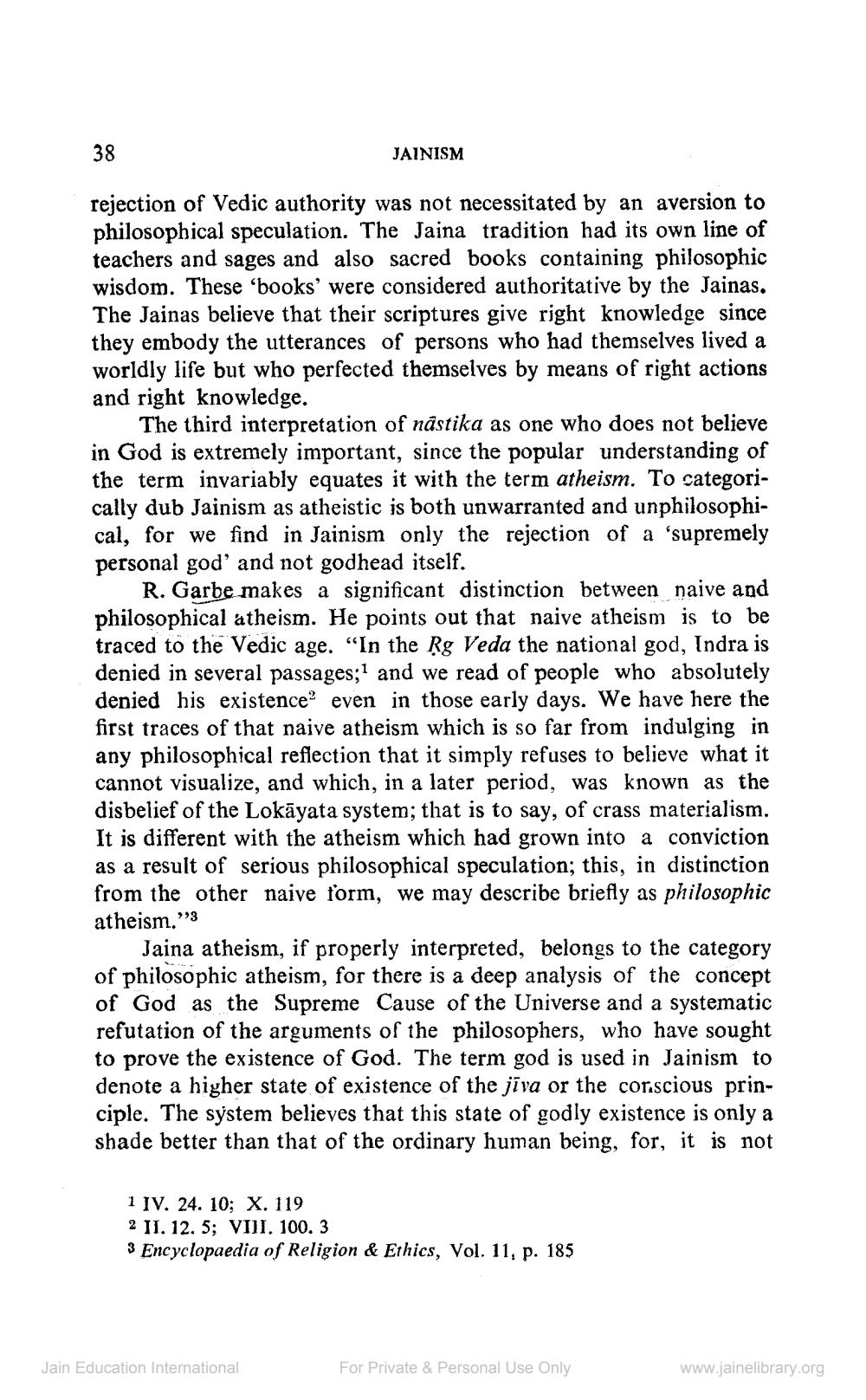________________
38
JAINISM
rejection of Vedic authority was not necessitated by an aversion to philosophical speculation. The Jaina tradition had its own line of teachers and sages and also sacred books containing philosophic wisdom. These books' were considered authoritative by the Jainas. The Jainas believe that their scriptures give right knowledge since they embody the utterances of persons who had themselves lived a worldly life but who perfected themselves by means of right actions and right knowledge.
The third interpretation of năstika as one who does not believe in God is extremely important, since the popular understanding of the term invariably equates it with the term atheism. To categorically dub Jainism as atheistic is both unwarranted and unphilosophical, for we find in Jainism only the rejection of a 'supremely personal god' and not godhead itself.
R. Garbe makes a significant distinction between naive and philosophical atheism. He points out that naive atheism is to be traced to the Vedic age. “In the Ķg Veda the national god, Indra is denied in several passages; and we read of people who absolutely denied his existence even in those early days. We have here the first traces of that naive atheism which is so far from indulging in any philosophical reflection that it simply refuses to believe what it cannot visualize, and which, in a later period, was known as the disbelief of the Lokāyata system; that is to say, of crass materialism. It is different with the atheism which had grown into a conviction as a result of serious philosophical speculation; this, in distinction from the other naive form, we may describe briefly as philosophic atheism."'3
Jaina atheism, if properly interpreted, belongs to the category of philosophic atheism, for there is a deep analysis of the concept of God as the Supreme Cause of the Universe and a systematic refutation of the arguments of the philosophers, who have sought to prove the existence of God. The term god is used in Jainism to denote a higher state of existence of the jīva or the conscious principle. The system believes that this state of godly existence is only a shade better than that of the ordinary human being, for, it is not
1 IV. 24. 10; X. 119 2 II. 12.5; VIII. 100. 3 3 Encyclopaedia of Religion & Ethics, Vol. 11, p. 185
Jain Education International
For Private & Personal Use Only
www.jainelibrary.org




